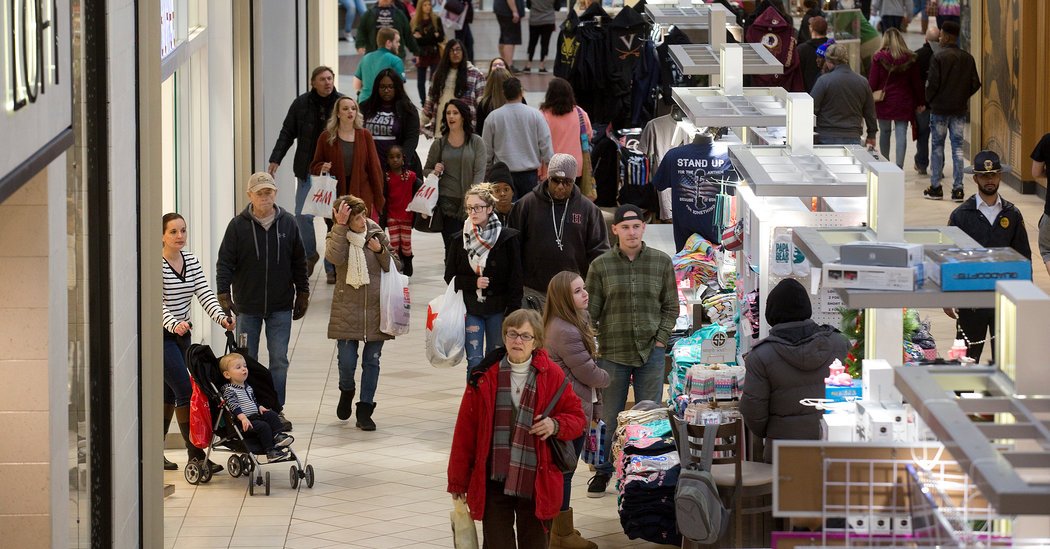Alibaba and Data
E-commerce was both an aspiration and a boogeyman. Amazon was often described in hushed tones; several exhibitors and speakers tried to avoid naming the online retailer at all.
But attendees packed a large hall on Tuesday to listen to an executive of Alibaba, a Chinese giant that many consider to be Amazon’s chief rival, describe how Asian consumers are eager to make purchases enabled by technology.
China “may well become the first cashless society in the future,” said Lee McCabe, vice president of Alibaba’s North America operations. Shoppers in China largely accept Alibaba’s voracious data collection, which allows the company to create detailed behavioral profiles across its many platforms.
Alibaba uses the information to help guide American brands like Mattel into China, Mr. McCabe said. To promote movies like “A Dog’s Purpose” to an Asian audience, Alibaba “targeted everybody who likes Dennis Quaid movies, who likes dogs, who has watched a dog video” using its vast trove of data, he said.
Artificial intelligence also plays heavily into Alibaba’s strategy and is used to predict supply chain volatility and personalize marketing. It also handles 95 percent of the inquiries the company receives from its customers. The system recognizes when shoppers become emotional and should be transferred to a human representative, Mr. McCabe said.
Certain consumers will soon be able to test-drive or purchase vehicles without any human contact, using their mobile phones at a garage that doubles as a vending machine, he said. Alibaba will have reviewed their credit scores and deemed them able to afford a car.
Hiring Challenges
Embracing technologies, and quickly, is crucial to survival as consumers grow more demanding, according to a panel of venture capital professionals.
“The consumer expectation of a frictionless shopping experience is here,” said Scott Friend, managing director of Bain Capital Ventures.
Digitally native companies are emerging and growing faster. Catching up can be difficult for large legacy chains, which have struggled to project enough cool factor to recruit in-demand employees.
“Talent is a major challenge for a lot of these retailers,” said Janie Yu, a partner at Fung Capital. “If you are a top-notch, A+ data scientist, you probably want to work at Bonobos or Facebook or Google or Jet.”
Mr. Friend said that companies like Walmart had tried to make cultural shifts to attract innovative employees, or folded them in through acquisitions.
“I don’t think it’s some magic that start-ups have that big companies don’t,” he said.
All retailers, however, are grappling with an existential debate over what constitutes a store, according to the panel. Is it a marketing platform? A place to buy goods?
Many companies are experimenting with new tactics, including showrooms and pickup services. Alex Taussig, a partner at Lightspeed Venture Partners, called this experimentation the “replatforming of retail.”
“This is all rethinking what it means to have a store, and this is why I think the retail apocalypse is not evenly distributed,” he said. “There are certain formats that will go away.”
Consumers in Control
Shoppers “used to be passive individuals in front of a shelf,” Laurence Haziot, a global managing director at IBM, said during another panel.
Consumers are in control, as retailers scramble to tailor products to their liking, design more elaborate shopping experiences to hold their interest and deliver purchases on increasingly short deadlines.
Customer behavior is getting harder to pin down. The boundaries between generations are disappearing, as so-called millennial and generation Z shoppers influence the buying habits of baby boomers, panelists said.
As companies compile more detailed dossiers on their clientele, stuffed with data collected online and in stores, retailers could someday fine-tune their marketing and scheduling to each consumer, the panelists said.
“We can microsegment as thin as we want in the future,” Ms. Haziot said. “Each individual is a segment in itself.”
By TIFFANY HSU
https://www.nytimes.com/2018/01/16/business/retail-online-sales.html
Source link



